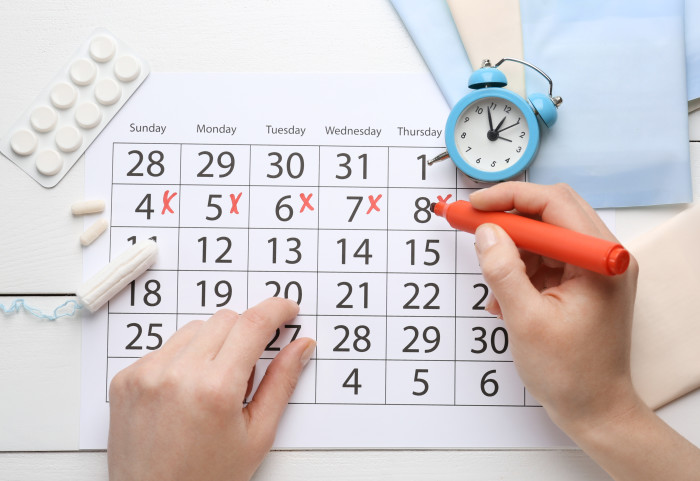COVID vaccination impact on menstrual cycle appears to be small and short lived

New studies show changes to the menstrual cycle do occur following vaccination, but they are small compared with natural variation and quickly reverse
Writing in an editorial published in the BMJ, Dr Victoria Male from the Department of Metabolism, Digestion and Reproduction, has described the results of two new international studies into the impact of COVID-19 vaccines on periods as 'limited but reassuring'.
A deeper understanding of the effects of both infection and vaccination on fertility will enable better counselling of patients for whom this is of particular concern. Dr Viki Male Lecturer in Reproductive Immunology
As vaccines have been rolled out to younger age groups, there has been a growing number of reports of impact on the menstrual cycle, with the UK Medicine and Healthcare Products Regulatory Agency (MHRA) receiving more than 36 000 reports of menstrual changes or unexpected vaginal bleeding following a COVID-19 vaccination.
However, as cycles vary naturally, and the MHRA does not collect comparison data from unvaccinated people, it has been difficult to establish whether menstrual changes increase after vaccination.
Two new studies from the US and Norway have helped shed some more light on the potential issue, and although they come with some caveats, the findings from both these studies are reassuring: changes to the menstrual cycle do occur following vaccination, but they are small compared with natural variation and quickly reverse.
The data
The US study of 3959 Americans, found that, in adjusted models, the first dose of vaccine had no effect on the timing of the subsequent period, while the second dose was associated with a delay of 0.45 days. The most affected were the 358 individuals who received both doses of the vaccine in the same cycle, experiencing a 2.32 day delay to their next period.
The second study from the Norwegian Institute of Public Health asked a pre-existing cohort of 5688 Norwegians whether they experienced specific menstrual changes in the cycles before and after each vaccine dose. The study found the most common change associated with vaccination was heavier than normal bleeding. However, the high level of variation in normal cycles is underlined by the finding that 37.8% of participants reported at least one change from normal even in pre-vaccination cycles.
Unlike the US's and Norway's 3-4 weeks intervals between vaccine doses, the UK has at least an 8 week interval between the first and second doses of the vaccine. As such, it is impossible to receive both doses of the vaccine in the same cycle, and this may mean that the changes observed in the US and Norway do not occur here.
A future study using UK participants and the same menstrual cycle tracking app as in the US study will help clarify whether a longer interval between vaccine doses reduces the impact on the menstrual cycle.
Unanswered questions and misinformation
Writing in the BMJ, Dr Male said: "Taking advantage of pre-existing datasets and cohorts means we have been able to make progress on these questions in a short time, but there is still much to learn."
Ongoing public concern on the risks and benefits of vaccination, particularly in women and around pregnancy, has arisen from misinformation that COVID vaccines cause female infertility. With evidence that COVID infections can alter periods, better defining the extent and persistence of these changes through further research and studies will be essential in better counselling women on the risks and benefits of vaccination.
Dr Male continues: "The work that has been done represents a step in the right direction, but the fact that it has taken us so long to get here reflects the low priority with which menstrual and reproductive health is often treated in medical research. The widespread interest in this topic highlights how pressing a concern this is for the public. It’s time we started listening to them."
Menstruation and covid-19 vaccination. Victoria Male. BMJ 2022; 376 doi: https://doi.org/10.1136/bmj.o142 (Published 26 January 2022)
Article text (excluding photos or graphics) © Imperial College London.
Photos and graphics subject to third party copyright used with permission or © Imperial College London.
Reporter
Benjie Coleman
Department of Surgery & Cancer